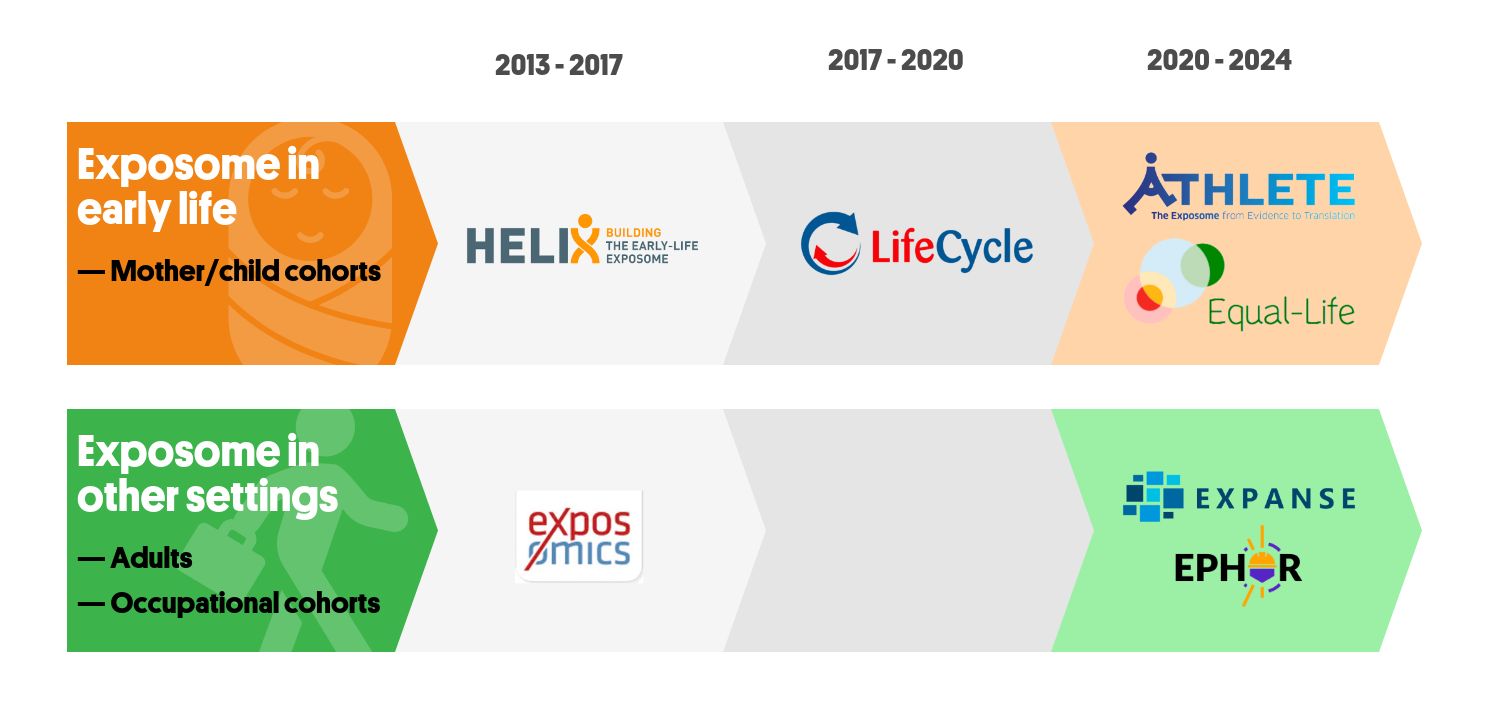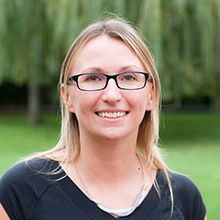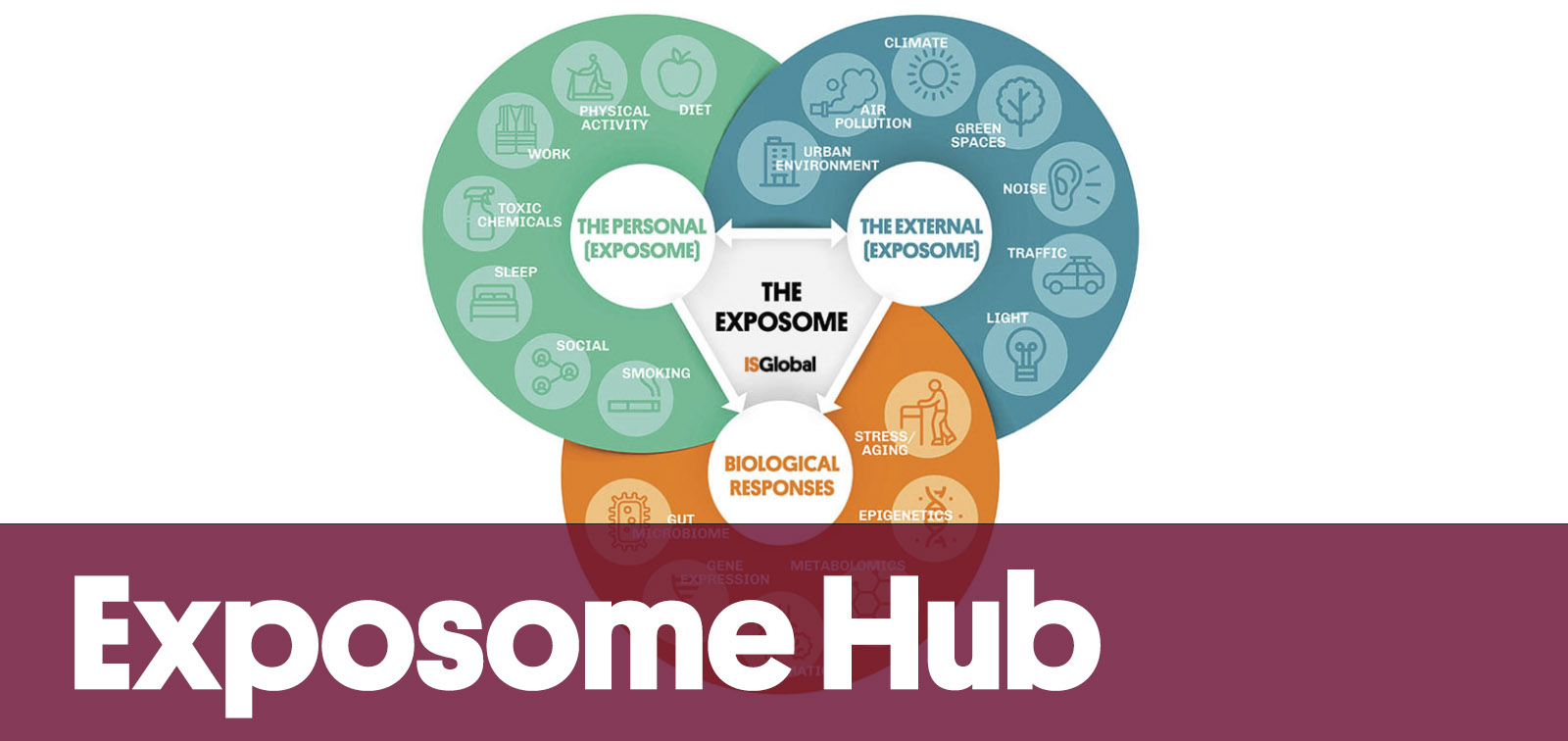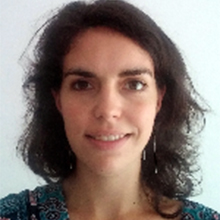Introducción al hub
El Exposome Hub de ISGlobal tiene como objetivo reunir una red de investigadores de los distintos programas de investigación de ISGlobal y más allá para seguir desarrollando herramientas y métodos innovadores que permitan estudiar múltiples riesgos ambientales y sus efectos en la salud.
Organizamos seminarios mensuales con personas expertas invitadas alrededor de temas específicos (por ejemplo, exposoma y salud cerebral, el exposoma social, exposoma en países de ingresos bajos y medios). Estas sesiones se celebran un jueves al mes, de 12 a 13 h (CET), y están pensadas para ser compartidas entre investigadores que trabajan en áreas afines. Además, organizamos cursos y talleres online regularmente (más información abajo).
Aunque el hub tiene su base en ISGlobal, está abierto también a personal investigador de otras instituciones, promoviendo así la colaboración y la creación de sinergias tanto dentro como fuera de ISGlobal.
Cómo unir-se al hub
Si deseas unirte al Hub, por favor completa este formulario. Al registrarte, recibirás invitaciones para nuestros seminarios mensuales y también el boletín informativo, que se envía cada mes o cada dos meses e incluye información sobre próximos congresos, talleres, ofertas de empleo y las últimas publicaciones en el ámbito del exposoma.
La importancia del exposoma en la investigación
Los riesgos ambientales representan probablemente una proporción elevada, aunque aún poco caracterizada, de la carga global de enfermedad. El exposoma, definido como "la totalidad de exposiciones ambientales humanas desde la concepción", reconoce que las personas están expuestas simultáneamente a múltiples factores ambientales, y adopta un enfoque holístico para identificar los factores etiológicos de la enfermedad.
La principal ventaja del exposoma frente a los enfoques tradicionales de “una exposición, una enfermedad” es que ofrece un marco conceptual sin precedentes para estudiar múltiples riesgos ambientales (urbanos, químicos, relacionados con el estilo de vida o sociales) y sus efectos combinados.
La definición más reciente lo describe como una recopilación integrada de todos los factores físicos, químicos, biológicos y psicosociales —y sus interacciones— que influyen en la biología y la salud, según la Red Internacional del Exposoma Humano (IHEN).
Promesas del exposoma
- Holístico → Sistemas complejos, múltiples exposiciones, mezclas.
- A lo largo de la vida → Secuencia temporal.
- Nuevas herramientas y tecnologías → Mejor cobertura y precisión en las exposiciones (ómicas, sensores, etc.).
- Exposoma interno → Respuestas biológicas tempranas.
- Descubrimiento no dirigido → Identificación de exposiciones desconocidas.
El rol de ISGlobal en la investigación del exposoma
ISGlobal se ha consolidado a la vanguardia de la investigación internacional sobre el exposoma mediante la coordinación y participación en varios grandes proyectos internacionales de exposoma financiados por la Comisión Europea (ver proyectos).
El Exposome Research Hub de ISGlobal reúne una red interdisciplinaria de investigadores de los siguientes programas:
- Clima, contaminación atmosférica, naturaleza y salud urbana
- Medio ambiente y salud a lo largo de la vida
Esto tiene como objetivo promover la excelencia, la innovación y la colaboración en la investigación sobre el exposoma, así como satisfacer las necesidades formativas de los investigadores en este campo.
Grandes proyectos de exposoma en ISGlobal

Líneas de investigación en los programas de ISGlobal
- Exposoma interno: exposiciones químicas y disruptores endocrinos.
- Exposoma externo: entorno urbano (por ejemplo, contaminación del aire, ruido, entorno construido, incluidos los espacios verdes); caracterización de la exposición basada en SIG; y modelización y medición de exposiciones.
- Exposoma en el ámbito laboral: armonización de la evaluación de exposiciones ocupacionales en Europa (EuroJEM).
- Respuestas biológicas / exposoma interno: estudiadas mediante tecnologías ómicas, epigenética, transcriptómica, proteínas inflamatorias, carga alostática, envejecimiento acelerado, microbioma intestinal y metabolómica.
- Implementación y armonización de cohortes: mega-cohortes para salud laboral, cohortes longitudinales madre-hijo, cohortes de adultos y mega-cohortes a partir de datos administrativos.
- Exposición y salud: salud mental y neurodesarrollo, salud cardiometabólica, obesidad y salud respiratoria.
- Bioinformática para la integración multi-ómica y análisis de datos federados (análisis realizados cuando los datos están almacenados en bases de datos federadas o, en general, en distintos repositorios, por ejemplo, DataSHIELD).
- Modelización avanzada de datos para mezclas de exposiciones e inferencia causal.
- Caracterización del aire en entornos urbanos y rurales: determinación de propiedades físicas de las partículas (de gruesas a ultrafinas) y análisis de su composición química (metales, no metales, etc.) y biológica (bacterias, hongos, virus). AIRLAB: laboratorio central de referencia.
Recursos y eventos anteriores
- Serie de talleres: Integración de datos multi-ómicos en estudios del exposoma humano – Enlace a los materiales (nov–dic 2024)
- Simpósium de Exposoma de Barcelona (sept 2024)
- Desafío de Análisis de Datos del Exposoma: métodos de vanguardia (2021)
- Exposome Toolbox: colección curada de herramientas de investigación sobre exposoma del International Human Exposome Network (IHEN)
- Catálogo Europeo de Datos y Muestras para la Investigación en Salud: esfuerzo colaborativo para integrar los catálogos de diversos proyectos y redes de investigación de la UE, con el fin de acelerar su reutilización y mejorar la salud de la ciudadanía
Para saber más
Sigue nuestros seminarios híbridos y suscríbete al boletín del hub (consulta ediciones anteriores):
Únete a la Red Internacional del Exposoma Humano (IHEN).
Más información
Únete a la conversación en redes sociales
Sigue y utiliza el hashtag #ISGlobalexposome para descubrir las publicaciones de nuestro equipo y compartir tus propias ideas sobre el tema.
Nuestro equipo
Coordinadora del Hub
-
 Lea Maitre Assistant Research Professor
Lea Maitre Assistant Research Professor
Project Manager del Hub
-
 Sara Stanulovic Project Manager
Sara Stanulovic Project Manager
Comité del Hub
-
 Payam Dadvand Research Professor
Payam Dadvand Research Professor -
 Cathryn Tonne Research Professor
Cathryn Tonne Research Professor -
 Michelle Turner Associate Research Professor
Michelle Turner Associate Research Professor -
 Martine Vrijheid Research Professor y directora del Programa de Medio ambiente y salud a lo largo de la vida
Martine Vrijheid Research Professor y directora del Programa de Medio ambiente y salud a lo largo de la vida
Proyectos
YEAH!
Youth hEAlth from a Holistic perspective
ENDOMIX
Understanding how endocrine disruptors and chemical mixtures of concern target the immune system to trigger or perpetuate disease
EXOMAIR
Hacia una Medicina de Precisión: Análisis del Exposoma y Omicas usando Inteligencia Artificial Explicable para estudiar su impacto durante la vida en la Obesidad, Insulino Resistencia y salud metabólica
IHEN
International Human Exposome Network
ATHLETE
Advancing Tools for Human Early Lifecourse Exposome Research and Translation














